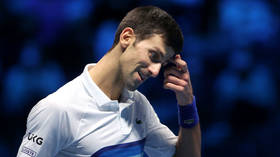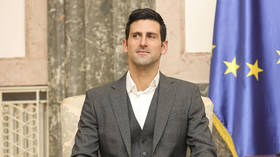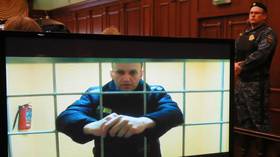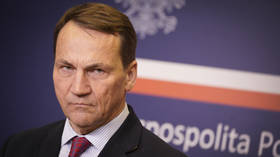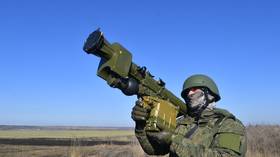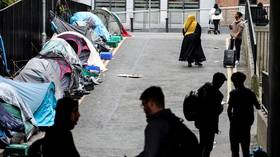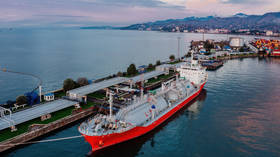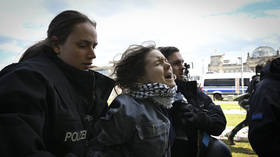‘Powerless’ Djokovic reveals peers’ reaction ‘hurt’ in vaccination saga
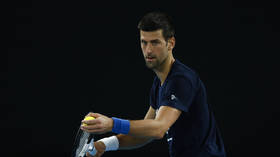
The world's number one tennis player, Novak Djokovic, has broken his silence surrounding the circumstances of his visa standoff with Australian immigration officials, as well as the reaction from his tennis peers and the circumstances of his stay in a controversial detention hotel in Melbourne last month.
The unvaccinated Djokovic was deported from Australia several days after arriving in the country in a bid to defend his Australian Open crown and pursue what would have been a record-breaking 21st Grand Slam victory, falling foul of the country's strict Covid-19 guidelines in a scandal which gripped the sporting world.
The Serbian star arrived in the country under the impression that he had been given a medical exemption from the mandatory vaccinations required for any foreign citizen to enter the country – but that was swiftly rebuked by Australian Border Force (ABF) officials.
The saga, though, would see several more twists before its conclusion. Djokovic's visa was reinstated after it was determined by a court that he had not been offered sufficient due process upon being detained.
However, it was again revoked by order of the country's Minister for Immigration, Alex Hawke - with Djokovic subsequently leaving the country after his final court appeal was denied.
Speaking in an interview with the BBC, Djokovic opened up on the detention hotel he was forced to stay at – which has come under fire for indefinitely holding refugees and asylum seekers in poor and even reportedly hazardous conditions.
"Well, it definitely wasn't pleasant but, you know, I don't want to be sat here and complaining about conditions in that detention center because I stayed seven days," Djokovic said of his temporary stay.
More concerning to him was his treatment at the hands of the ABF, who he says denied him the use of his phone, didn't allow him to sleep and required him to constantly explain his situation in several interviews.
"Yes, I did feel powerless," he said. "When I arrived, I was not allowed to use my phone for three, four hours. It was the middle of the night, from 1am to 9am. I didn't get any sleep because I was going through questioning every 30 minutes, basically.
"You know I had many, many interviews that were started and then stopped and then paused, and then I waited for the person to speak to his superiors, then he would come back. It went on for the entire night."
Djokovic's case was only settled in the days before his first scheduled match – a situation he says made for a truly bizarre preparation schedule for the year's first Grand Slam.
But more hurtful than his visa situation, he says, was the reaction to it by some of his peers in the tournament.
"The visa was reinstated. First revoked, then reinstated, then revoked again. So I was free for four days and I was training, but it was not regular kind of training days that I would normally have prior to a Grand Slam competition," he explained.
"I had helicopters flying above every single training session that I had on the Rod Laver Arena, cameras all over the place, also my colleagues, and that really hurt me a lot you know, because I felt that energy and those looks from my colleagues and people that were in the tennis facility.
"Obviously I understand that they had a perception that was based on what they were seeing from media reports and I wasn't able... I wasn't going out in the media because of what I previously said in [terms of] respecting the legal process and respecting the Australian Open."
The Australian Open was eventually won by Spain's Rafael Nadal, who pipped Russia's Daniil Medvedev to the crown in a thrilling final, and in doing so became the first men's tennis player to win 21 Grand Slams.
